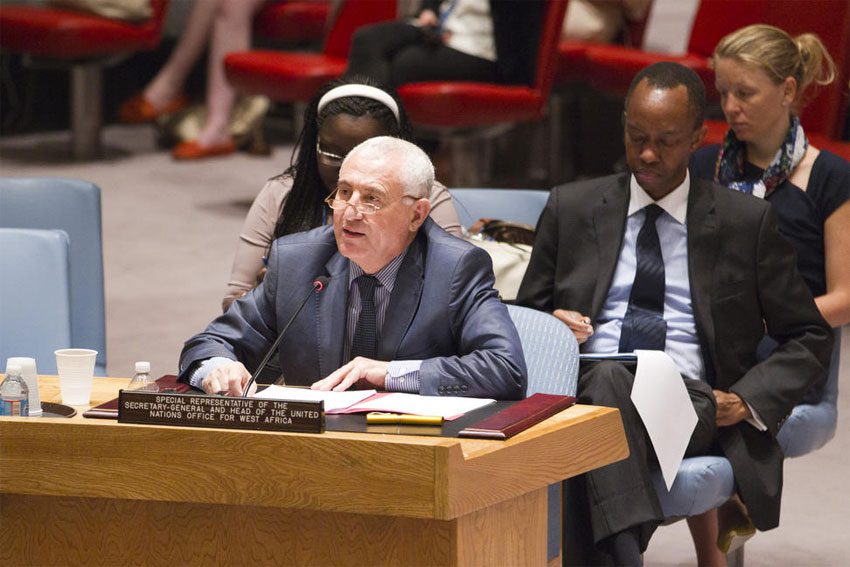While noting the progress made in addressing political and security issues in West Africa, the members of the United Nations Security Council today voiced concern over challenges such as transnational organized crime, drug trafficking, terrorism and piracy in the Gulf of Guinea.
“They stressed that these challenges pose a threat to the peace, stability and progress of the sub-region and beyond and could be addressed through multilateral cooperation among the member States,” the 15-member body said in a statement issued to the press.
Yesterday, the Secretary-General’s Special Representative and head of the UN Office for West Africa (UNOWA), Said Djinnit, told the Council that while countries in the region are trying to promote development and consolidate democracy, they continue to face daunting challenges such as transnational organized crime and growing terrorist activities.
He also cited the increasing threat posed to the security and stability of Nigeria by the insurgent group known as Boko Haram, which has been responsible for numerous attacks, including the abduction in April of over 200 schoolgirls in Chibok in Borno state.
Council members today expressed concern over the threat posed by the activities of Boko Haram in northern Nigeria and the neighbouring countries of Niger, Chad and Cameroon.
They welcomed Mr. Djinnit’s efforts in his role as the Secretary-General’s High-level Representative to Nigeria, facilitating UN support for ongoing efforts towards the safe release of the schoolgirls, as well as for wider assistance to address the Boko Haram threat.
With a number of elections scheduled to take place in the region next year, including in Côte d’Ivoire, Burkina Faso, Guinea, Niger and Nigeria, the Council encouraged all actors to make efforts to create conducive conditions for inclusive, free, credible and peaceful polls.
In addition, the Council expressed its deep concern over the current outbreak of the Ebola virus in some countries in West Africa and conveyed to the international community the need to provide prompt assistance in order to prevent the spread of the virus.



